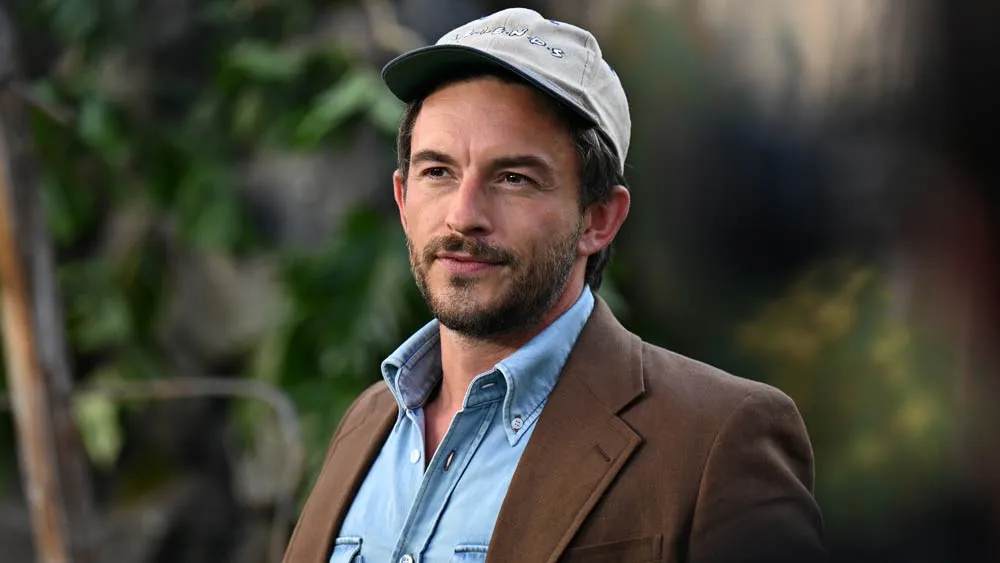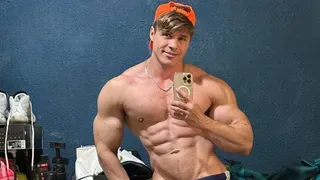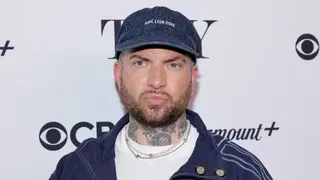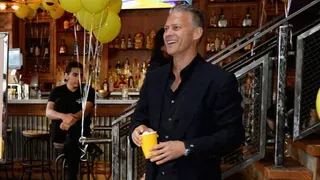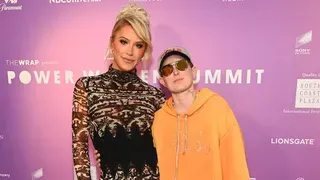October 8, 2017
LGBT History Month: Fall of 1977 Part of Seminal Period in LGBT History
Matthew S. Bajko READ TIME: 7 MIN.
In October 1977 the LGBT community throughout California was embattled. Conservative Orange County state Senator John Briggs was circulating a statewide ballot initiative that would ban homosexuals from working in the state's public schools.
Groups were forming around the Golden State to defeat the anti-gay measure, dubbed the Briggs initiative, should it go before voters the following year. Its backers felt emboldened by the overturning of an LGBT rights ordinance that June in Florida's Miami-Dade County, an achievement orchestrated by Anita Bryant, a singer and former Miss Oklahoma who was a spokeswoman for the state's citrus industry.
After voters in the Sunshine State overwhelmingly repealed the local anti-gay discrimination ordinance, Bryant had vowed to take her battle against LGBT rights nationwide, starting in California, where state legislators in 1975 had repealed an anti-gay sodomy law.
"In June of 1977, after the Miami-Dade repeal effort passed, emergency meetings were called here. All the gays and lesbians in the country were watching San Francisco," recalled Bruce Pettit, 72, a gay man working as a reporter for the gay Sentinel newspaper at the time. "We were the leaders of the gay community in San Francisco for a lot of reasons. After Miami, people looked to San Francisco and asked, 'What are they going to do?' We didn't know what we were going to do either."
Emotions were further enflamed in San Francisco ahead of that year's Pride parade due to the June 22 stabbing death of gay city gardener Robert Hillsborough on the street in front of his Mission district home. Witnesses reported hearing his teenage murderer shout the killing was "for Anita!"
And in the city's Castro district, gay rights leader and camera shop owner Harvey Milk was on the cusp of winning a seat that November 8 on the Board of Supervisors to become the first out politician in both the city and state. It was the third bid for elected office by Milk, who routinely implored LGBT people to come out of the closet and demand to be treated equally in political columns he penned for the Bay Area Reporter.
"It was invigorating and quite a significant victory," recalled former city and state lawmaker Tom Ammiano, a gay San Francisco public school teacher who came out publicly to fight the Briggs initiative, of Milk's supervisor win. "Milk happened at the perfect time. He stepped into that role quite admirably."
That fall 40 years ago was part of a seminal two-year period that would profoundly impact the LGBT community to this day. Locally, it heralded four decades of LGBT political representation in the halls of City Hall.
It also saw the establishment of LGBT organizations celebrating their ruby jubilees this year, such as the Log Cabin Republicans and Frameline, San Francisco's international LGBT film festival. In 2018 the Gay and Lesbian Freedom Day Band, the San Francisco Gay Men's Chorus, and the rainbow flag will all mark their 40th anniversaries.
March 21 next year will be the 40th anniversary of the city's Board of Supervisors passing a gay rights ordinance that banned discrimination in employment, housing, and public accommodations based on sexual orientation, at the time touted as the most far-reaching LGBT legislation in the country. And next fall will see 40th anniversary celebrations around the defeat of the Briggs initiative, labeled Proposition 6 on the November 7, 1978 ballot.
Sadly, this timeframe in LGBT history is bookended by Milk's assassination, along with then-Mayor George Moscone, at City Hall the morning of November 27, 1978 by disgruntled former supervisor Dan White. Milk's death cemented him as a worldwide hero for the global LGBT community who continues to inspire new generations of young people to this day.
"You can't overstate enough how important 1977 was, from in the spring when we knew we were under attack by Anita Bryant, all the way into 1978," said oral historian Glenne McElhinney, a lesbian who at that time was living in Berkeley and working as a mechanic. "Both 1977 and 1978 so affect us today because so many of the rights we have, so many of the campaigns that we started were successful in those two years, and so many of the organizations that started in that timeframe are still around."
And Bryant's anti-gay crusade had another lasting impact, argued McElhinney, 61, who is directing a documentary about the Briggs initiative to be used as a teaching tool in California schools.
"Anita Bryant also brought women and men together to work together at that time when women and men weren't working together that much," said McElhinney, who was a member of the Bay Area Committee Against the Briggs Initiative, known as BACABI for short. "There were so many organizations that brought everybody together because everybody was under attack."
Speaking to the Bay Area Reporter at this year's San Francisco Pride parade, Celeste Newbrough also described 1977 and 1978 as "very significant years" in terms of LGBT history. In the summer of 1977 she chaired the first meeting of the Coalition for Human Rights, which would make defeat of Prop 6 its main mission, and in 1978 co-chaired the Pride parade committee.
"A lot of the things we now take for granted formed at that time," noted Newbrough, who died in August at the age of 77. "The mood was very feisty. I think it was a combination of the political and creative scenes back then. There was tremendous creativity in the LGBT community. We needed to fight the political battles with creativity."
San Francisco resident Paula Lichtenberg, 71, co-chaired BACABI with the late Michael H. Mank, a gay public school math and science teacher in San Mateo who died in 1992 due to AIDS-related causes at the age of 53. In a recent interview with the B.A.R. Lichtenberg, a lesbian who in the 1970s worked as a librarian for engineering firm Bechtel in downtown San Francisco, credited the No on 6 campaign efforts for politically activating the LGBT community in record numbers.
Despite "all the awful things" that Bryant and her Save Our Children campaign unleashed in 1977, it prompted "many people to come out, and that was so important," recalled Lichtenberg. The surge of LGBT activism could be seen in the participation at San Francisco's annual Pride parades, which swelled in both 1977 and 1978, she noted.
"I did an exhibit for the GLBT Historical Society, like 15 years ago or so, and we looked at the parade programs from 1975 and from 1978, which had like three times as many organizations listed," said Lichtenberg. "People were really energized as a movement. I could say before Anita Bryant, we were the love that dare not speak its name, and afterward, we were the love that wouldn't shut up."
Few Today Know of Prop 6
Yet few people who did not live through that era are familiar with the fight against Briggs and its lasting impacts, as evidenced at a recent talk about Prop 6 held at San Francisco State University. Few of the 140 people in the audience, mainly students, raised their hands when asked if they knew about the Briggs initiative.
"There was tremendous oppression of gays and lesbians under this time. There were many states in the country where homosexuality was illegal and you could be arrested and lose your job," recalled Gwenn Craig, 66, a lesbian who co-managed the San Franciscans Against Prop 6 campaign committee.
At the talk at SF State, Craig credited Briggs' homophobic rants in the press for driving volunteers to the No on 6 efforts. The public faces of the campaign were Milk and Sally Gearhart, the first out lesbian to receive a tenure-track position at SF State in 1973, as they co-chaired the United Fund Against the Briggs Initiative and took on Briggs in several televised debates.
The opponents of Prop 6 also caught several lucky breaks. On October 20, 1977 the Pride Foundation, which ran the LGBT community center in San Francisco and was led by attorney Paul Hardmann, filed a motion with the state Supreme Court to disqualify the signatures that had been gathered to place the measure before voters due to an omission on the forms. It forced Briggs to start from scratch, missing the deadline to place Prop 6 on the June primary ballot in 1978.
It instead landed on the November ballot that year, giving the LGBT community another five months to organize against Prop 6. A pivotal moment came in the fall of 1978 when former California Governor Ronald Reagan publicly came out against Prop 6.
The Republican's opposition was followed by a flood of newspaper editorials across the state against Prop 6, and many believe Reagan helped turn voters against the homophobic measure. Come Election Day, Prop 6 was overwhelmingly defeated, even in Brigg's home base of Orange County, a Republican stronghold.
"I think Ronald Reagan coming out against it was a big deal. It gave cover for a lot of Republicans to say if Reagan says it is a bad idea, maybe we should pay more attention to it," said Pasadena resident Terry Hamilton, 67, a gay man and GOP member who at the time was a closeted fourth grade teacher at a private Christian elementary school.
Hamilton and his then-partner, John Ruble, led a double life, straining to keep their relationship a secret from his students and co-workers. Watching the results come in on election night in 1978 "was a gut-wrenching time," he recalled.
"It was a big blow to my mind. Even though it wouldn't have affected me working in private Christian school, I certainly had aspirations to move into the public school arena, so that gave me some comfort," said Hamilton, who was fired from his teaching position and then landed a job with the public schools in the small town of Duarte.
To shine more light on the Briggs initiative fight, McElhinney and Lichtenberg formed the Victory Over Briggs Commemoration 2018 committee with Sue Englander, a history lecturer at SF State, and John Durham, who owns Bolerium Books on Mission Street. They are planning a series of events next year to highlight the LGBT community's successful defeat four decades ago of both Briggs and Bryant.
"She wanted to make homosexuality a felony and wanted to put homosexuals and gay people in jail. That is why the 1977 campaign that turned into the 1978 campaign was so important," noted McElhinney. "We were under direct attack and we knew it. We were not only standing up for California, but LGBT people here were basically going to stand up for the rest of the country."
